Patna: The paper for Bihar’s Teacher Recruitment Exam was leaked from an obscure highway dhaba in the Bari Pahari area. The driver of the truck ferrying the sensitive question papers stopped for a break. And just like that, the powerful paper mafia got to him.
The questions leaked across the state at lightning speed. Officers, middlemen and students swung into action. The examination was rescheduled, and the ambitions of lakhs of aspirants were shattered. That was in March 2024. Since then, more than 300 people have been arrested.
Conducting a government recruitment examination in Bihar has become so complex that it is nothing less than conducting general elections. Bihar Public Service Commission’s measures now include control centres, CCTVs, strongrooms, codes, trucks with digital locks, special squads, multi-agency involvement, locked question paper containers and secret godowns to store them. But they have done little to stop the mafia and stem the tide of leaks and disruptions. It’s a broken system that has led to a seasonal cycle of protests and headlines.
“Conducting an exam of this magnitude, with 3,00,000 to 4,00,000 candidates, requires the deployment of tens of thousands of personnel,” controller of examination, Rajesh Kumar Singh told ThePrint, the frustration leaking into his voice. It’s an army of district administration staff, state police, invigilators, examiners, CCTV operators, agencies who install jammers and support staff such as peons and biometric handlers. “The expenditure to run one such exam ranges from Rs three to four crore.”
In the 2024 case, the Kolkata-based printer who was awarded the contract delivered the question papers to a transport godown in Patna instead of the treasuries in an attempt to save costs. From there, the papers were distributed to 38 district treasuries in smaller vehicles instead of locked container trucks.
The printer was blacklisted, but the action taken is at best a flimsy bandage. The public service commission has been left red in the face with papers being published on social media via cell phones hidden in bathrooms.
The government’s war with the paper mafia has left lakhs of students disillusioned, depressed and demoralised. Most have spent years preparing for the exams only to retake them again and again.
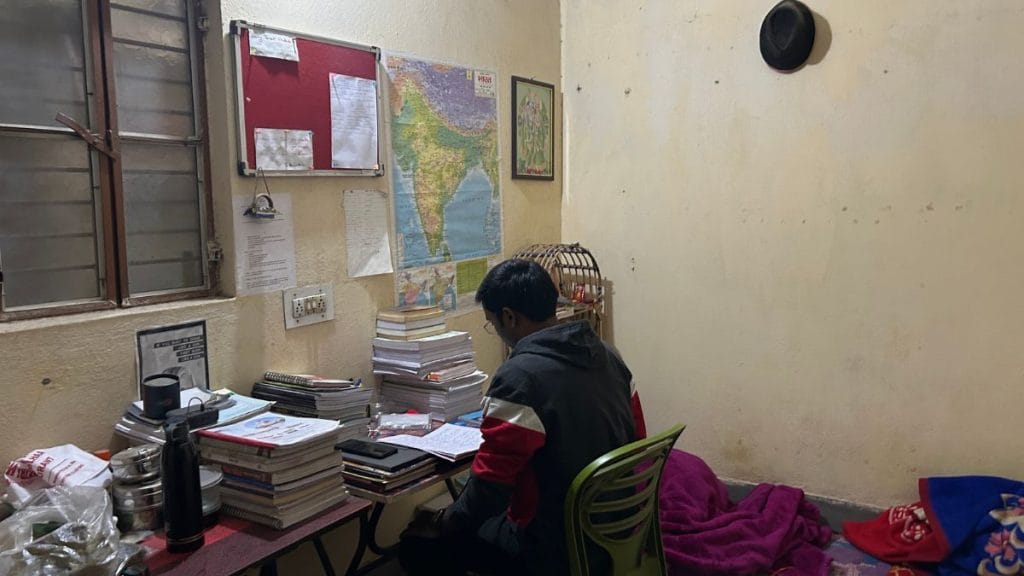
The straw that broke the camel’s back was a massive disruption at one of the examination centres on 13 December last year. It was where the preliminary exam of the 70th Combined Competitive Examination (CCE) was being held. Since then, there has been wave after wave of protests, allegations that the paper was leaked, calls for a cancellation, police lathi charging aspirants, and complaints of bureaucratic callousness. The matter is now in the Patna High Court with petitioners, all aspirants, calling for an inquiry and a cancellation of the exam. The court has asked the state and the commission to submit an affidavit by 30 January. The case will be heard next on 31 January.
“The BPSC chairman called protesting students non-serious. If he wants to see seriousness, the commission should hold the examination again,” said Riya Kumari (26), who first took the exam in 2022. Both her attempts have been declared void because the paper was cancelled.
The expenditure to run one such exam ranges from Rs three to four crore
Rajesh Kumar Singh, controller of examination
As the protests become increasingly politicised, it has widened the chasm between the Bihar Public Service Commission and aspirants competing for a secure government job.
“There is a trust deficit between the commission and students,” said former BPSC chairperson and retired IAS officer Atul Prasad.
Also read: 4am reporting, long wait, no doctor—What Jharkhand constable aspirants faced before death
Did the paper leak?
As BPSC’s new controller of examination, Rajesh Kumar Singh had planned the 70th Combined Competitive Examination (CCE) Preliminary exam down to the smallest detail. At 11 am, when the exam commenced, he heaved a sigh of relief. There were no leaks or even murmurs of the paper being compromised. But then the phone at BPSC’s control room on Bailey Road in Patna rang. It was 12:12 pm.
There was trouble at Patna’s Bapu Pariksha Kendra, one of the 912 exam centres across Bihar. Inaugurated in August 2023, it is the state’s largest exam centre with a capacity to seat 20,000 candidates. It was the first time that BPSC was conducting its civil services exam at this centre. More than 12,000 candidates from six districts of Bihar, Uttar Pradesh, and Odisha had assembled there.
As a precaution, the commission had even deployed two of its own officers at the centre. After all, there was a history of things going wrong. Around five minutes after the initial alarm that there was a ruckus in one of the rooms, Singh called back for an update. But no one answered.
By 12:30, the disturbance had spread like wildfire to other rooms, and within ten minutes there was chaos. Videos on social media show candidates tearing up OMR sheets. Another clip shows papers being snatched from candidates and tossed in the air.
The incident led to widespread BPSC protests across Bihar, which have now escalated into a full-blown political war. There are two versions of the story: one from students, who claim that the paper was leaked, and the other from the commission, which insists that it wasn’t.
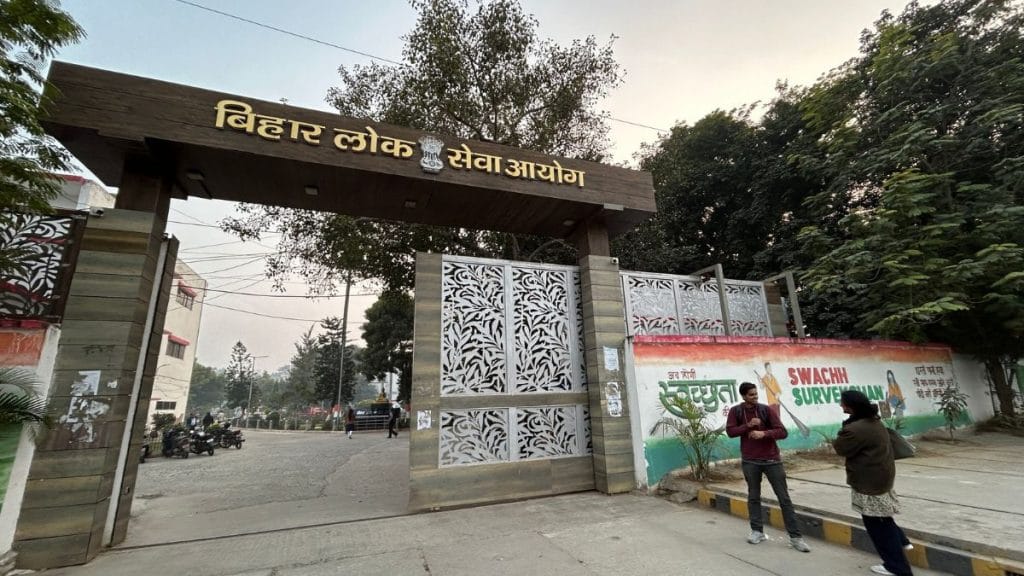
“Between 11 am and 2 pm, all candidates are literally jailed inside these examination halls after being fully sanitised,” said Singh, who was appointed controller two months ago. He added that if the paper had been leaked even one minute before 11, he would have cancelled the exam.
Sticking to their stand that the paper was not leaked, Singh and the BPSC cancelled the examination for only 12,012 candidates at the Kendra. The reexamination was held on 4 January, but only 5,943 candidates sat for it.
There is a trust deficit between the commission and students
Atul Prasad, former BPSC chairman
“We will declare the final results in the last week of January through the combined process. It means we have two sample sizes of 3.24 lakh students and the remaining 5,943 students,” Singh told ThePrint.
But Riya Kumari and the hundreds of aspirants at the Patna centre are calling for the entire exam to be cancelled. On 29 December, they held protests at Gardanibagh in Patna, rallying under the banner of ‘Shiksha Satyagrah’, but were lathi-charged by the police.
Riya, who is from Bihar’s Nalanda district began her BPSC journey with 67th BPSC in 2022, which was marred by a paper leak. She had to appear for the re-examination, but didn’t make the cut. Two years later, she finds herself stuck in a similar situation with the 70th BPSC exam. Allegations of paper leaks, unified demands for re-examination, and an intense political campaign ahead of the Assembly polls at the end of the year.
“I sat in one of the rooms in Block B, near Gate Number 3. We were on the first floor, waiting for the question paper until 12:30. We saw that the question paper was already distributed on the ground floor,” she recalled.
She has returned home but is still struggling with the mental anguish caused by the events of 13 December.
She alleged that when the male candidates in the adjoining room lost patience, they became agitated and started coming out of their rooms. That’s when the candidates in her room joined the crowd too.
“We waited anxiously for the invigilator to distribute the question paper. Half an hour had passed, and there was no sign of the question paper or OMR sheets. We never got the question paper.”
Now, there are rumours that the question papers weren’t sealed and had been leaked by the group that started the ruckus.
We have a precedent in such instances, we have already conducted the re-exam for the affected centre. Why should the rest of the lakhs of students suffer for what happened at one centre?
Satya Prakash Sharma, BPSC secretary
“I got sick due to the stress,” said Riya, who couldn’t stomach sitting for the re-exam.
She’s banking on the protests bearing some fruit and the entire exam being declared cancelled. A master’s student in geography honours from Pataliputra University, she had previously cleared the sub-inspector and constable exams, but her eyes were all set on the BPSC.
“I feel directionless now.”
Also read: Govt job in Jharkhand means corruption, cheating, exam delays, court cases—JPSC to JSSC
A political war
By 15 January, the accusations and allegations went beyond the paper being leaked. Students are now claiming that the jammers didn’t work in some centres. In others, there were power cuts. Some students are now claiming that biometrics weren’t done for them, and that centres were changed for some 5,000 students days before the exam date. All this is part of the petition to the High Court.
The clamour for a complete cancellation is growing louder. The yellow tent protest site at Gardanibagh, Patna, has become a symbol of unity for the candidates who have met with Governor Arif Mohammad Khan, Chief Secretary Amrit Lal Meena and BPSC chairperson Parmar Ravi Manubhai with appeals for a cancellation.
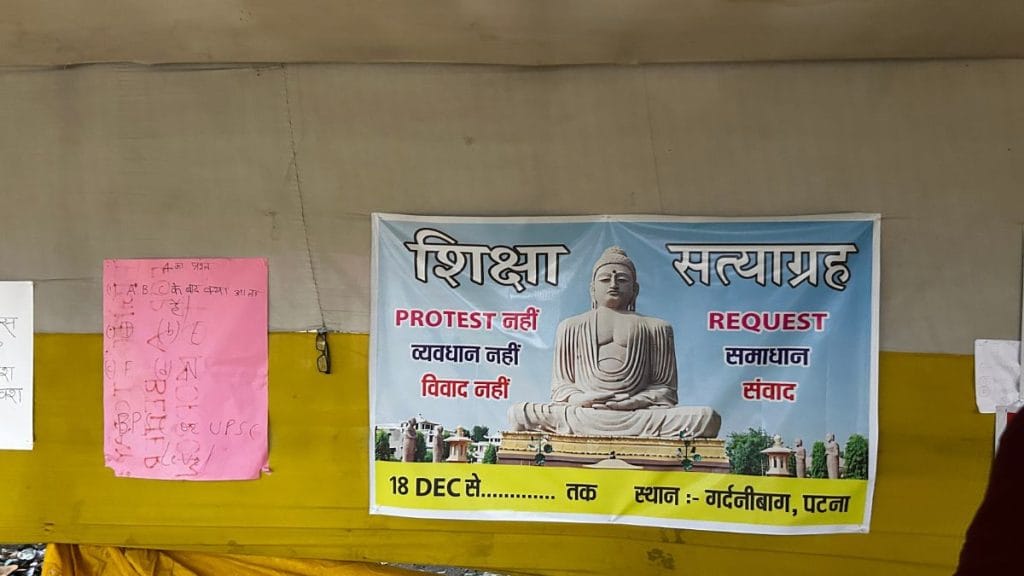
Quick to capitalise on the situation, parties like RJD, Congress, LJP and Jan Suraj have waded into the fray, calling out the government for lathi-charging the candidates. Purnea MP Pappu Yadav even called for a bandh in Bihar. The protesting students have been demanding to meet Chief Minister Nitish Kumar, who has yet to comment on the matter.
Whether politicisation will achieve anything or not, at least there are voices standing up for us
MK, BPSC aspirant
On 13 January, when the CM was in Samastipur for his Pragati Yatra, a group of BPSC aspirants and other student organisations protested with placards saying: ‘Nitish Kumar Go Back’
Patna’s Gandhi Maidan witnessed another protest on 2 January— a hunger strike led by Jan Suraj’s Prashant Kishor. But shortly after midnight on 5 January, the Bihar police removed Kishor from the protest site. In response, he relocated his tents to ‘Marine Drive’ next to the Ganges River, to continue his protests. The state authorities removed the tent city from there as well on 12 January. He was later permitted to set up at the location. While Kishor ended his hunger strike on 16 January, he said he would continue to support the students.
“We haven’t forgotten what happened at Gandhi Maidan. Those who misused the law against us will have to face justice,” Kishor told local media outlet Live Cities, while launching Satyagraha Part 2 from his tent city.
“We strongly believe in the students’ cause, and the state and commission will have to do the right thing,” he added.
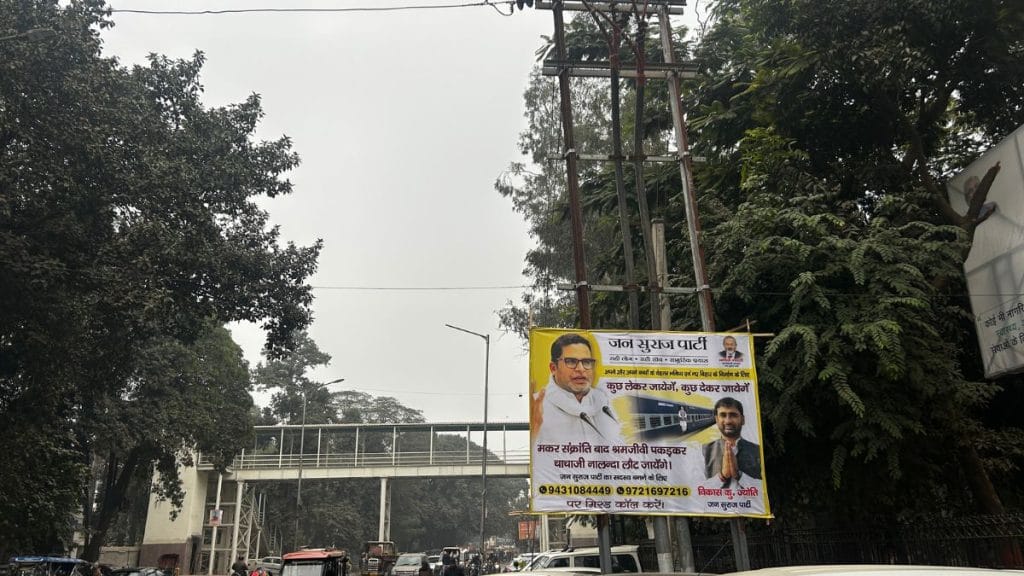
According to BPSC’s legal notice against Kishor, he alleged that “children’s jobs were sold for Rs 1 crore to Rs 1.5 crore” and claimed that the scam amounted to “over Rs 1,000 crore”.
“Whether politicisation will achieve anything or not, at least there are voices standing up for us,” said 28-year-old MK, a BPSC aspirant who participated in the 29 December protest and was lathi-charged. This was his third attempt.
Also read: Tamil Nadu, Uttarakhand, Rajasthan — why state PSC exams are on perpetual delay mode
No evidence of leak
Conducting civil services examinations for posts within the state government is a behemoth and expensive task. And staying a step ahead of the mafia and fixing all the loopholes is proving to be a challenge for the BPSC.
Singh recalled an incident when a lower-ranking government employee hid a phone in the bathroom two days before the exam.
“On the day of the exam, he managed to get the paper set from the invigilator by falsely claiming that the superintendent had requested it. He then moved out of the mobile phone jammed area to leak the paper,” said Singh.
The Economic Offences Unit of the Bihar Police has registered 10 cases since 2012, leading to the arrest of 545 accused individuals, according to Manavjeet Singh Dhillon, Deputy Inspector General (DIG) of the EOU.
“Charge sheets have been filed against 249 of them, and we hope that the number of charge-sheeted accused would exceed 400 in the next two weeks,” the DIG had said in a press conference last month. But the EOU is not investigating the 13 December incident.
“There is no evidence of a paper leak,” said Dhillon.
Anyone could leak, or manipulate or mishandle it [the paper]. We decided to deliver it two hours before the exam. We replaced the gunny bags with trucks that have digital locks. Passcodes are only to be disclosed half an hour before the exam
Atul Prasad, former BPSC chairman
Slew of measures
The post of BPSC chairperson is a hot seat–one that has seen four heads since 2022, including two acting chairpersons.
After the 67th BPSC scandal, when the paper was released on social media back in 2022, the government installed IAS officer Atul Prasad as the fix-it man. During his two-year tenure, he conducted the 67th re-exam, as well as the 68th and 69th exams. He introduced a slew of measures, but the highway Dhaba paper leak unfolded under his watch—just days before he was due to retire.
One of the first things he did was to make exam centres leak-proof.
“The exam centre is itself the biggest weak point. I regulated the entry of candidates one hour before the exam. For instance, if an exam starts at 12, all candidates had to be in by 11 am,” he said.
There were instances of students submitting blank OMR sheets. He made it compulsory for the OMR sheets to be sealed before the candidates leave the exam centre so that they could not be manipulated later.
When he took over, the practice was to deliver the set of question papers two days prior to the exam.
“Anyone could leak, or manipulate or mishandle it. We decided to deliver it two hours before the exam. We replaced the gunny bags with trucks that have digital locks. Passcodes are only to be disclosed half an hour before the exam,” he said.
The commission also set up a control room, installed CCTV cameras in centres, and standardised the evaluation system. For more transparency, on-screen evaluation was introduced where graded answer sheets were scanned, and photocopies were given to examinees. OMR sheets too were uploaded online for all to access. “We ended the endless RTIs and emails asking for OMR sheers with one step,” he said.
Not one to mince his words, Prasad is dismayed by the recent events.
“The commission had lost its credibility significantly in the last one month. They should have controlled this before it escalated to a lathi charge,” said Prasad, who had an open-door policy with students and the media.
Not everyone in BPSC approved of this policy. One senior official who did not want to be named called it a headache.
Prasad spoke to students, coaching institutes, parents—everyone. And this resulted in misinformation and crossed wires, said the senior official.
“Unfortunately, candidates dragged the commission into litigation due to easy access and the coaching mafia would encash the interaction with the head. So we had to put an end to this,” the official added.
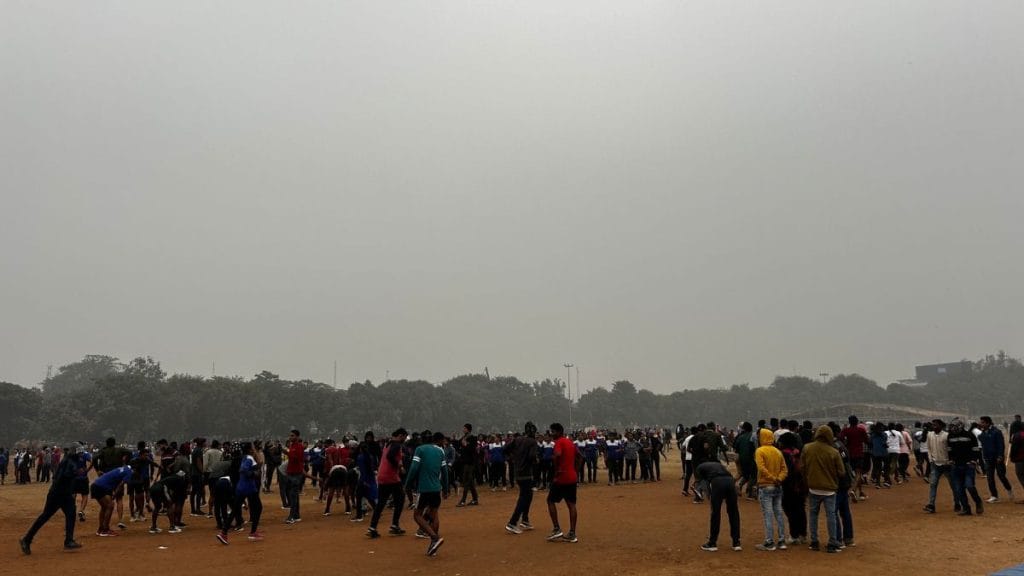
The current chairperson, Parmar Ravi, doesn’t engage with the media or aspirants directly. Instead, the commission appointed a full-time PRO to engage with the public. But among protesters, this has created a feeling of dictatorial leadership.
The commission had lost its credibility significantly in the last one month. They should have controlled this before it escalated to a lathi charge
Atul Prasad, former BPSC chairman
Ravi, too, has introduced measures to stymie the paper mafia. Previously, BPSC used only one set of question papers, making it highly susceptible to leaks. Now, there are three colour-coded sets of questions.
The decision on which paper to use is now based on a lottery system involving the chairperson, secretary, controller of examination, and a few BPSC staff members.
On the day of the examination, at 9 am, they all gather, and one of the staffers picks a chit. “The treasury officer is informed at 9:05,” the commission’s Secretary Satya Prakash Sharma told ThePrint.
The papers are then delivered to the centre within 30 to 60 minutes by the patrolling magistrate, depending on the distance between the centre and the treasury.
The digitally locked question paper trunk is opened in the presence of two candidates from each room, the centre superintendent, the assistant superintendent, and the patrolling magistrate.
“The question papers are sealed from three sides, minimising the possibility of a leak even if one or two seals are opened,” Sharma added.
After the dhaba leak, printers are also under intense scrutiny. Their identities are secret, and printed question papers are now dispatched in a container truck with an airtight digital lock. Inside, a CCTV camera is installed to monitor the contents, and the trucks are tracked via GPS.
The Bihar government has introduced the Bihar Public Examinations (Prevention of Unfair Means) Bill 2024, in which individuals involved in paper leaks will face a prison term of three to five years and a fine of Rs 10 lakh. Additionally, if a service provider, whether a government entity or a private agency, engages in paper leaks, it will face a fine of Rs 1 crore and a four-year suspension of service.
“The only way to deal with the mafia is to be two steps ahead of them,” said former chairperson Prasad.
Coaching ‘mafia’
For BPSC Secretary Satya Prakash Sharma, the real headache for the commission is not the paper mafia, but the coaching ‘mafia’.
“The current protests have been instigated and fuelled by this ‘mafia’. Consequently, the commission has sent legal notices not only to Prashant Kishor but also to Khan Sir and other coaching institutes,” he said.
He accused them of misleading candidates with date extensions and paper leak rumours.
“For every date extension, they introduce a crash course for Rs 12,000. If one coaching centre has 2,500 students, they make Rs 3 crore rupees for one date extension. Imagine 10 coaching centres doing this,” Sharma added.
In its report on the 13 December fracas, which it has submitted to the HC, the Commission clarified that the examination centre for 5,000 candidates from Nawada district was not changed at the last minute. The district was mistakenly printed as Gaya instead of Nawada, but the school name, block name, town name, and street numbers were correct. Four days before the exam, the commission sent emails and messages to each candidate, informing them that the correct district was Nawada.
The current protests have been instigated and fuelled by this [coaching] ‘mafia’. Consequently, the commission has sent legal notices not only to Prashant Kishor but also to Khan Sir and other coaching institutes
Satya Prakash Sharma, BPSC secretary
On the current protests, Sharma said that 20 candidates have been identified as the rabble rousers. The Bihar School Examination Board has been asked to double-check the identity of those at Bapu Pariksha Kendra who created the ruckus, tore the OMR sheets, and disturbed the peaceful candidates.
A similar incident occurred during the 68th BPSC exam, where the question paper was delivered 20 minutes late amid complaints that it had been opened in the corridor and not in the classroom. The matter reached the High Court, which decided that the BPSC would hold a re-exam for that particular centre and declare a combined result.
“Now that we have a precedent in such instances, we have already conducted the re-exam for the affected centre. Why should the rest of the lakhs of students suffer for what happened at one centre?” said Sharma.
But the BPSC’s response has come as a blow to candidates like Riya Kumari and a 28-year-old SC aspirant from Rohtas district who still bear the bruises of the lathi charge.
He arrived in Patna in 2020 risking Covid-19 just to prepare for the BPSC exam. But he’s yet to make the cut. He participated in every protest until 29 December when he returned to his one room-set up injured. A few days ago, he, and 50 other candidates gathered at a private library called Priyam on Boring Road. He had paid a thousand rupees every month to sit in this dark, dingy library and study from 9 am to 8 pm.
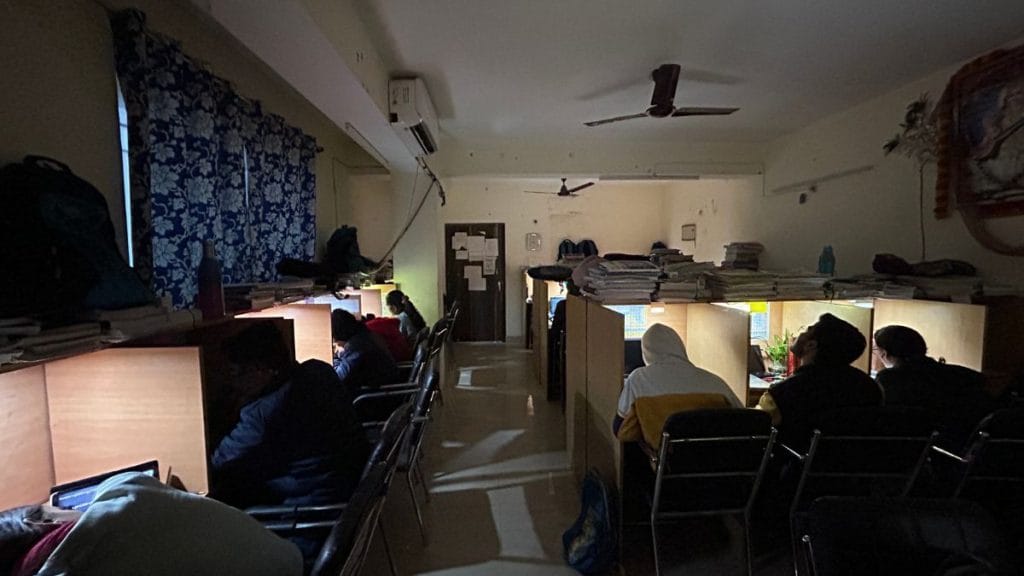
“The commission doesn’t see the seriousness and hard work of people like us. One paper leak undoes years of effort. For someone like me, it’s not just a way to break free from generational poverty but also the only window to rewrite my story,” said the aspirant who didn’t want to be named.
“You never know, I may reach the interview level one day, and I don’t want them to identify me.”
(Edited by Theres Sudeep)



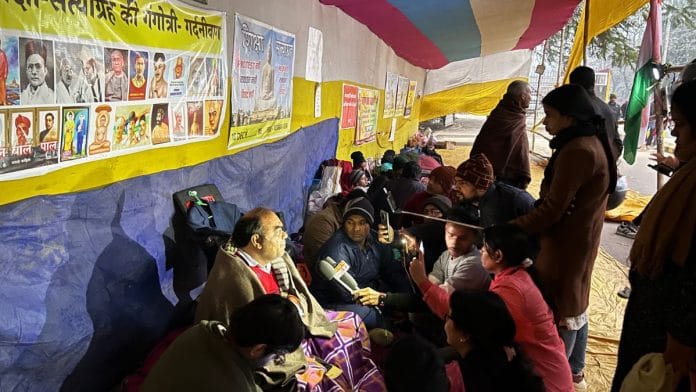



This is precisely the reason why the Union govt must not conduct centralised entrance tests for admission to UG courses in medicine (NEET-UG & PG) or general arts and science streams (CUET).
Bihar has mastered the art of paper leaks and every single paper gets leaked. This is the primary reason why Biharis corner most seats in UPSC examinations. Any national level exam, either for higher studies or employment, gives Bihar an unfair advantage over others. Paper leaks result in Biharis scoring more marks than others and gobbling up seats everywhere.
The Union govt must leave this responsibility to states. Of course, Bihar cannot leak a paper in tests conducted by Tamil Nadu officials, Delegating the authority to conduct entrance tests to the states will substantially lessen the impact of Bihar paper leak mafia.